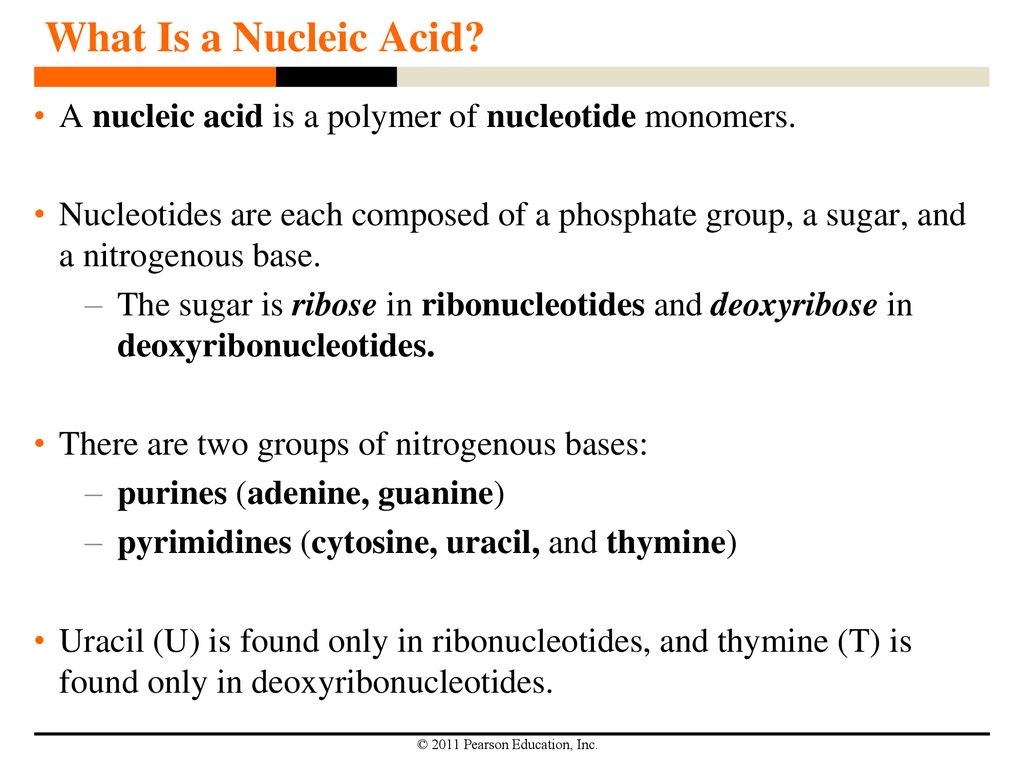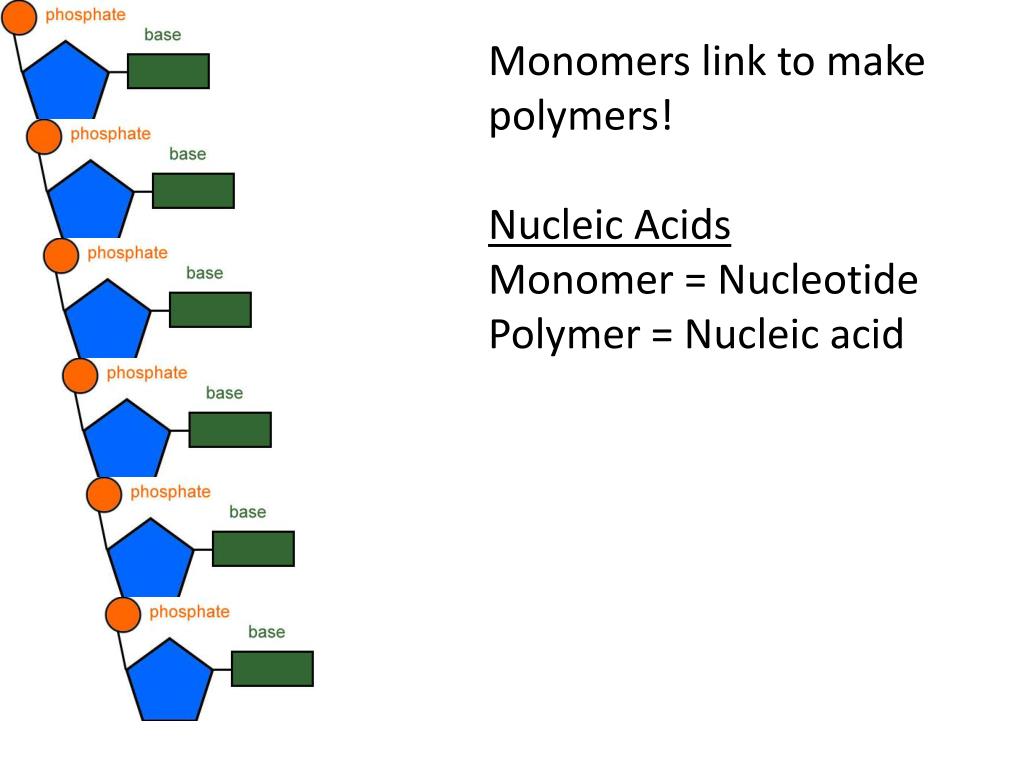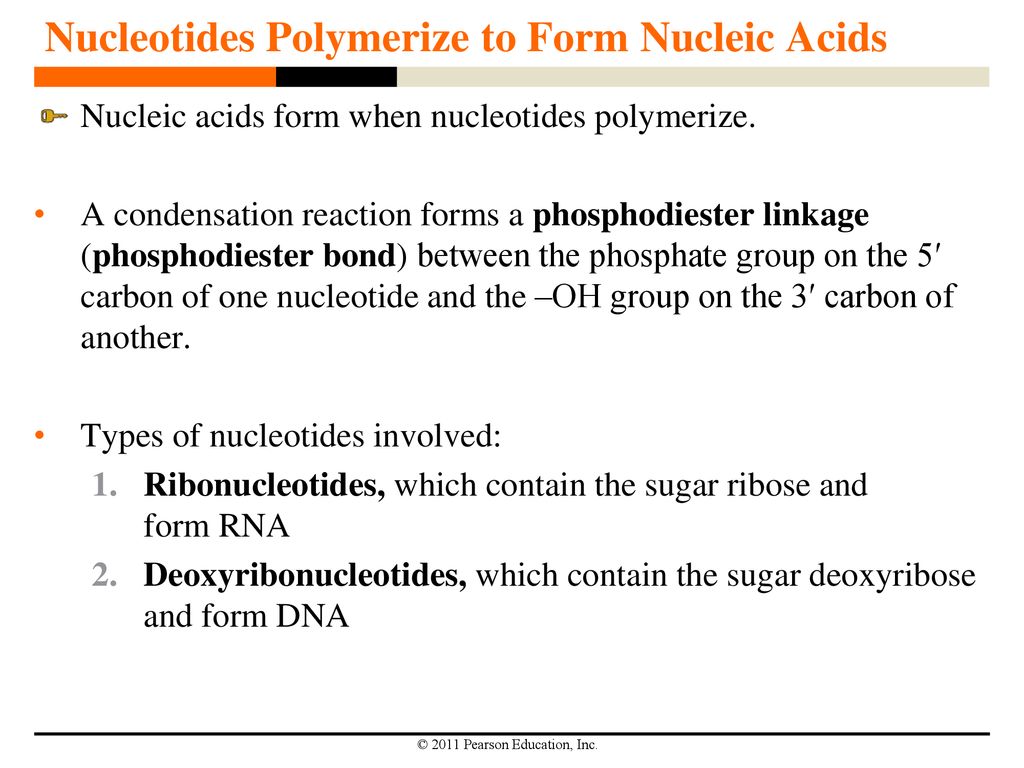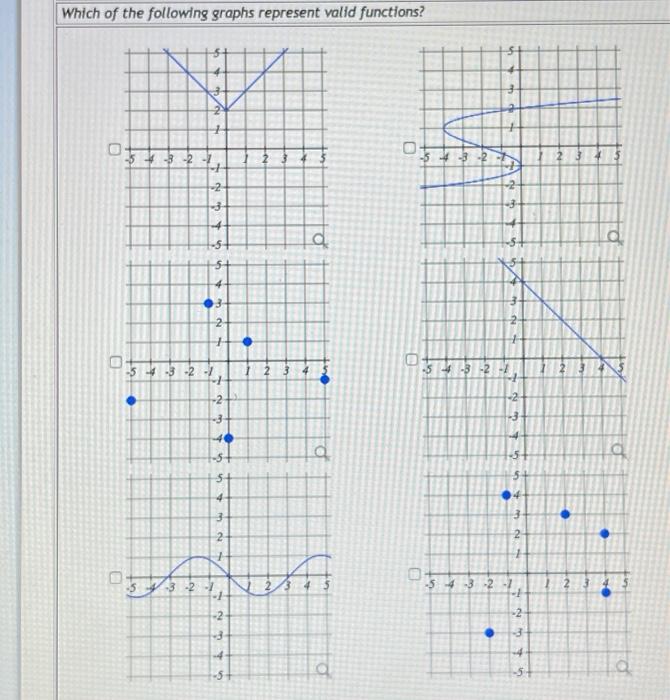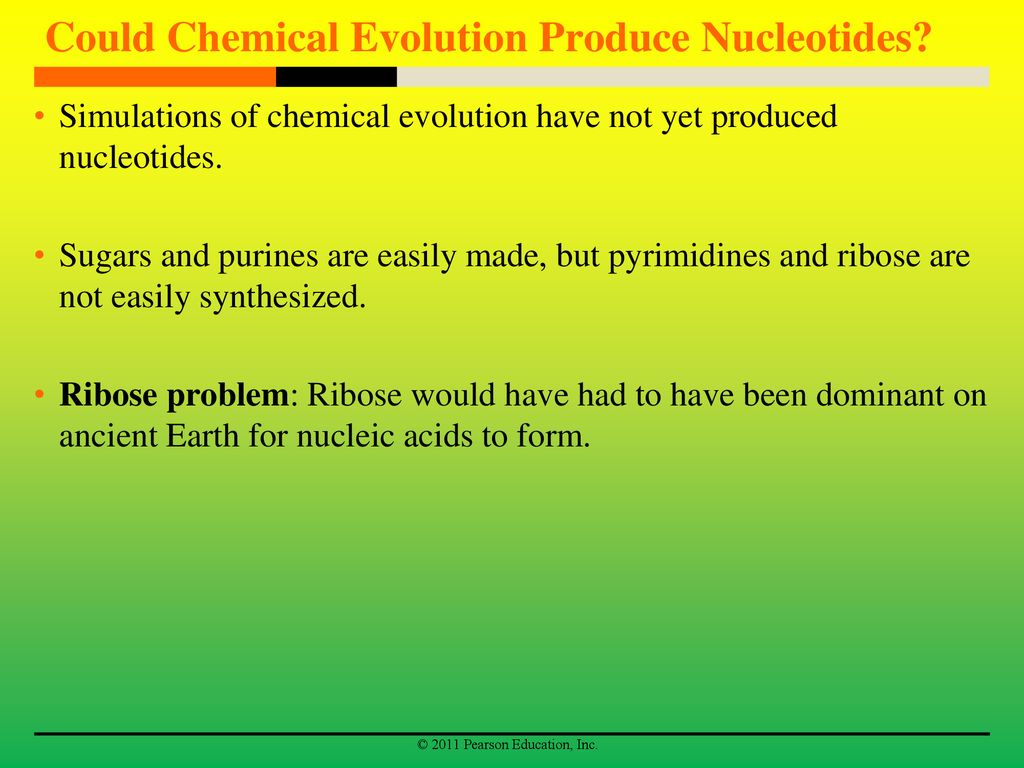When Nucleotides Polymerize To Form A Nucleic Acid
When Nucleotides Polymerize To Form A Nucleic Acid - The repeating, or monomer, units that are linked together to form nucleic acids are known as nucleotides. Nucleotides are joined together similarly to other biological molecules, by a condensation reaction that releases a small, stable molecule. Deoxyribonucleic acid (dna) and ribonucleic acid (rna). When nucleotides polymerize, they form two primary types of nucleic acids:
Deoxyribonucleic acid (dna) and ribonucleic acid (rna). Nucleotides are joined together similarly to other biological molecules, by a condensation reaction that releases a small, stable molecule. The repeating, or monomer, units that are linked together to form nucleic acids are known as nucleotides. When nucleotides polymerize, they form two primary types of nucleic acids:
The repeating, or monomer, units that are linked together to form nucleic acids are known as nucleotides. Deoxyribonucleic acid (dna) and ribonucleic acid (rna). When nucleotides polymerize, they form two primary types of nucleic acids: Nucleotides are joined together similarly to other biological molecules, by a condensation reaction that releases a small, stable molecule.
nucleic acid Definition, Function, Structure, & Types Britannica
The repeating, or monomer, units that are linked together to form nucleic acids are known as nucleotides. Deoxyribonucleic acid (dna) and ribonucleic acid (rna). Nucleotides are joined together similarly to other biological molecules, by a condensation reaction that releases a small, stable molecule. When nucleotides polymerize, they form two primary types of nucleic acids:
Key Concepts Nucleotides consist of a sugar, phosphate group, and
The repeating, or monomer, units that are linked together to form nucleic acids are known as nucleotides. When nucleotides polymerize, they form two primary types of nucleic acids: Deoxyribonucleic acid (dna) and ribonucleic acid (rna). Nucleotides are joined together similarly to other biological molecules, by a condensation reaction that releases a small, stable molecule.
Solved When nucleotides polymerize to form a nucleic
Deoxyribonucleic acid (dna) and ribonucleic acid (rna). When nucleotides polymerize, they form two primary types of nucleic acids: Nucleotides are joined together similarly to other biological molecules, by a condensation reaction that releases a small, stable molecule. The repeating, or monomer, units that are linked together to form nucleic acids are known as nucleotides.
Nucleic Acid Monomer
Deoxyribonucleic acid (dna) and ribonucleic acid (rna). The repeating, or monomer, units that are linked together to form nucleic acids are known as nucleotides. When nucleotides polymerize, they form two primary types of nucleic acids: Nucleotides are joined together similarly to other biological molecules, by a condensation reaction that releases a small, stable molecule.
When Nucleotides Polymerise To Form A Nucleic Acid
The repeating, or monomer, units that are linked together to form nucleic acids are known as nucleotides. Nucleotides are joined together similarly to other biological molecules, by a condensation reaction that releases a small, stable molecule. Deoxyribonucleic acid (dna) and ribonucleic acid (rna). When nucleotides polymerize, they form two primary types of nucleic acids:
Key Concepts Nucleotides consist of a sugar, phosphate group, and
Deoxyribonucleic acid (dna) and ribonucleic acid (rna). Nucleotides are joined together similarly to other biological molecules, by a condensation reaction that releases a small, stable molecule. The repeating, or monomer, units that are linked together to form nucleic acids are known as nucleotides. When nucleotides polymerize, they form two primary types of nucleic acids:
Solved When nucleotides polymerize to form a nucleic
Deoxyribonucleic acid (dna) and ribonucleic acid (rna). Nucleotides are joined together similarly to other biological molecules, by a condensation reaction that releases a small, stable molecule. When nucleotides polymerize, they form two primary types of nucleic acids: The repeating, or monomer, units that are linked together to form nucleic acids are known as nucleotides.
What Are Nucleic Acids? — Structure & Function Expii
Nucleotides are joined together similarly to other biological molecules, by a condensation reaction that releases a small, stable molecule. The repeating, or monomer, units that are linked together to form nucleic acids are known as nucleotides. When nucleotides polymerize, they form two primary types of nucleic acids: Deoxyribonucleic acid (dna) and ribonucleic acid (rna).
(Solved) When Nucleotides Polymerize To Form A Nucleic Acid_ A) A
When nucleotides polymerize, they form two primary types of nucleic acids: Deoxyribonucleic acid (dna) and ribonucleic acid (rna). The repeating, or monomer, units that are linked together to form nucleic acids are known as nucleotides. Nucleotides are joined together similarly to other biological molecules, by a condensation reaction that releases a small, stable molecule.
Key Concepts Nucleotides consist of a sugar, phosphate group, and
Deoxyribonucleic acid (dna) and ribonucleic acid (rna). Nucleotides are joined together similarly to other biological molecules, by a condensation reaction that releases a small, stable molecule. The repeating, or monomer, units that are linked together to form nucleic acids are known as nucleotides. When nucleotides polymerize, they form two primary types of nucleic acids:
When Nucleotides Polymerize, They Form Two Primary Types Of Nucleic Acids:
The repeating, or monomer, units that are linked together to form nucleic acids are known as nucleotides. Nucleotides are joined together similarly to other biological molecules, by a condensation reaction that releases a small, stable molecule. Deoxyribonucleic acid (dna) and ribonucleic acid (rna).

